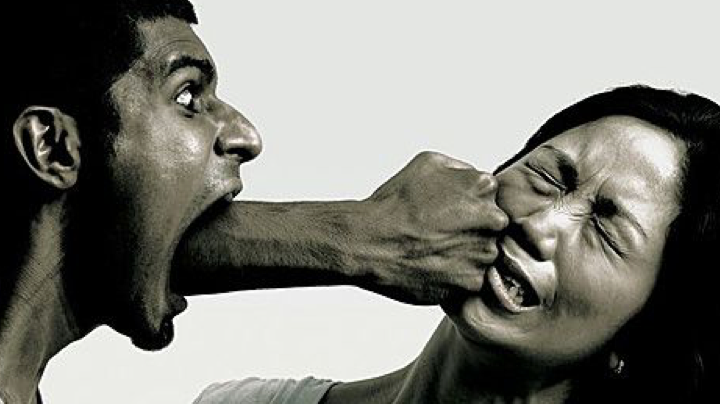
Romantic or sexual relationships are one way to connect and share with other people. And romantic or sexual relationships often play an important role in our overall health and well-being.
It’s important to remember that relationships can be complicated, unhealthy, or even unsafe.
Understanding the truth about unhealthy relationships can help you decide if yours is good for you. Unfortunately, too many women are in relationships that involve a loss of sexual and reproductive control. Knowing what this looks like can help you identify when something is not right in your relationship.
Relationships can provide you with great happiness, but they can also be very challenging. We hope this information helps you in your relationships.
Relationships that are not healthy are based on power and control, not equality and respect. In the early stages of an abusive relationship, you may not think the unhealthy behaviors are a big deal. However, possessiveness, insults, jealous accusations, yelling, humiliation, pulling hair, pushing or other negative, abusive behaviors, are — at their root — exertions of power and control. Remember that you deserve to be respected and loved. There is no excuse for abuse of any kind.
Your Inner Thoughts and Feelings
Do you:
- feel afraid of your partner much of the time?
- avoid certain topics out of fear of angering your partner?
- believe that you deserve to be hurt or mistreated?
- wonder if you’re the one who is crazy?
feel emotionally numb or helpless?
Your Partner’s Belittling Behavior
Does your partner:
- humiliate or yell at you?
- criticize you and put you down?
- treat you so badly that you’re embarrassed for your friends or family to see?
- ignore or put down your opinions or accomplishments?
- blame you for their own abusive behavior?
see you as property or a sex object, rather than as a person?
Your Partner’s Violent Behavior or Threats
Does your partner:
- have a bad and unpredictable temper?
- hurt you, or threaten to hurt or kill you?
- threaten to take your children away or harm them?
- threaten to commit suicide if you leave?
- force you to have sex?
destroy your belongings?
Your Partner’s Controlling Behavior
Does your partner:
- act excessively jealous and possessive?
- control where you go or what you do?
- keep you from seeing your friends or family?
- limit your access to money, the phone, or the car?
constantly check up on you?
It is still abuse if...
- The incidents of physical abuse seem minor when compared to those you have read about, seen on television, or heard other women talk about. There isn’t a “better” or “worse” form of physical abuse; you can be severely injured as a result of being pushed, for example.
- The incidents of physical abuse have only occurred one or two times in the relationship. Studies indicate that if your spouse/partner has injured you once, it is likely he will continue to physically assault you.
- The physical assaults stopped when you became passive and gave up your right to express yourself as you desire, to move about freely and see others, and to make decisions. It is not a victory if you have to give up your rights as a person and a partner in exchange for not being assaulted!
- There has not been any physical violence. Many women are emotionally and verbally assaulted. This can be as equally frightening and is often more confusing to try to understand.
If you think your relationship is unhealthy, it’s important to think about your safety now. Consider these points as you move forward:
- Understand that a person can only change if they want to. You can’t force your partner to alter their behavior if they don’t believe they’re wrong.
- Focus on your own needs. Are you taking care of yourself? Your wellness is always important. Watch your stress levels, take time to be with friends, get enough sleep. If you find that your relationship is draining you, consider ending it.
- Connect with your support systems. Often, abusers try to isolate their partners. Talk to your friends, family members, teachers, counsellor and others to make sure you’re getting the emotional support you need.
Think about breaking up. Remember that you deserve to feel safe and accepted in your relationship.
Safety Planning
If you feel unsafe in your relationship, however you are not ready to end it yet, it is important to think about how you will keep safe. Some things you might want to think about to include:
- What do you usually do when you feel like you are in danger?
- Where could you go if you do not feel safe?
- How will you get to the place where you feel safe? (is the transportation you need available at all times?)
- Who do you trust to help you should you be in danger? (Friend, neighbour, family member . . .)
- How will you contact this person if you need them?
- What would you need to take with you if you had to leave quickly? (documents, money, etc)
- If you have children, consider how they could be part of your safety plan?
Ending an abusive relationship
Ending an unhealthy or abusive relationship is not like ending a healthy one. Your abusive partner may not accept the break up or respect your boundaries. They may try to control you through guilt trips, threats or insults. It may be very difficult to have a peaceful or mutual breakup with an abusive partner. Just know that as long as YOU are ok with the decision, it’s ok if your partner is not. If you’re thinking of ending your relationship, consider these tips:
- If you don’t feel safe, don’t break up in person. It may seem cruel to break up over the phone or by text, but it may be the safest way.
- If you break up in person, do it in a public place.
- Don’t try to explain your reasons for ending the relationship more than once. There is nothing you can say that will make your ex happy.
- Let your friends and parents know you are ending your relationship, especially if you think your ex will come to your house or confront you when you’re alone.
- If your ex does come to your house when you’re alone, don’t go to the door.
- Trust yourself. If you feel afraid, you probably have a good reason.
After Breaking Up
Just because an unhealthy or abusive relationship is over, doesn’t mean the risk of violence is too. Use these tips to stay safe after ending your relationship:
- Talk with your friends and family so they can support you.
- If you can, tell your parents what’s going on, especially if your ex may come by your home.
- Talk to a school counselor, teacher or community member you trust. Together, you can alert security, adjust your class schedule or find other ways to help you feel safer.
- Avoid isolated areas at school and local hangouts. Don’t walk alone or wear earphones.
- Keep friends or family close when attending parties or events you think your ex might attend.
- Save any threatening or harassing messages your ex sends. Set your profile to private on social networking sites and ask friends to do the same.
So, What’s Next?
It may not be obvious at first, but everything you put behind you only makes room for exciting changes in your life. Instead of spending time being stuck in a rut (that remind you of what you’re trying to forget), get creative and do something new! Also, remember what made you happy before the relationship. Were there things that you loved to do, but stopped because of your partner?
If you find yourself getting hung up on old memories, stay strong and remember how you felt when you made this decision. You don’t have to put up with that anymore and you can be fully in control of your own life again. Looks like the single life might not be so bad after all!
And remember - When you end a relationship, even if you’re the one who wanted to end it, it can feel like your heart is being ripped out of your chest. But even though at the time it feels like you’ll never feel alright again, you will.
